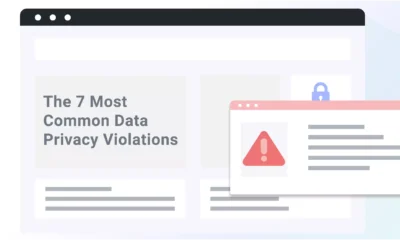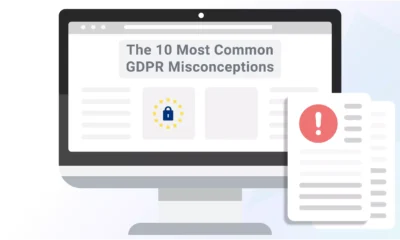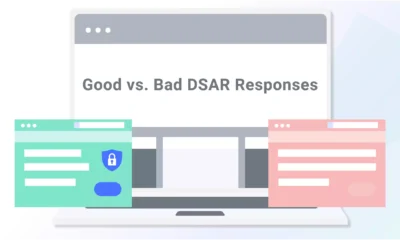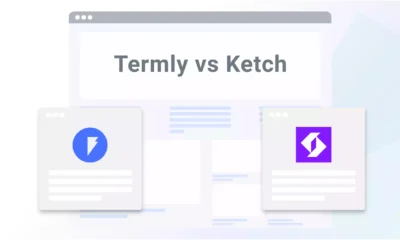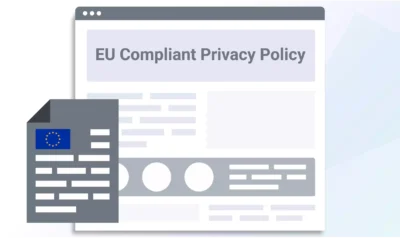Being a social media influencer is like owning a business, and advertisers — as well as the Federal Trade Commission (FTC) — know you may sway your followers’ buying choices.
Because of this, the FTC provides influencer guidelines that impact how you disclose endorsements, sponsorships, and partnerships with other brands and companies.
Failing to follow these guidelines could lead to the termination of your business contracts, hefty fines, and the loss of the trust of your followers.
Keep reading to learn all about the FTC rules and requirements for influencers, see a list of what to and not to do with sponsored content across different platforms, and look at what the future holds for influencers and sponsored ads.
Summary of FTC Guidelines for Influencers
According to the FTC guidelines, influencers should always make it clear to followers if a post, video, or statement is in a material connection with the product’s owner.
The FTC defines a material connection as any of the following:
- Contracts with a business
- Family relationships
- Monetary payments
- Provisions of free products for the influencer
The definition is very broad, so even if you receive a discount or obtain any kind of benefit from the product owner, this will be considered a material partnership.
❌ What Influencers Can’t Do
According to the FTC guidelines on endorsing products, goods, or services, influencers can’t:
- Assume followers already know about your brand relationships and, as a result, not disclose your partnership with a brand.
- Only disclose the endorsement in the description of videos, posts, or podcasts, and not verbally state that you’re part of a brand deal.
- Only make your endorsement information visible to users by making them click the ‘View More’ button on different social media platforms.
- Use vague language, unfamiliar shorthand, or confusing terms like “sp” or “spon” so that it isn’t clear to your users that you’re part of an endorsement.
- Talk about products you’ve never actually received, experienced, or used.
- Make claims about products that cannot be substantiated or backed up with evidence from the owner of the product.
- Lie about a product and your feelings simply because you were paid.
- Saying that a product was good despite thinking that it was terrible
✅ What Influencers Should Do
Some of the things you should do to comply with the FTC guidelines include the following:
- Always disclose if you have a financial, employment, personal, or family relationship with a brand whose product you are talking about, regardless of whether your opinion is positive or negative.
- Make disclosures on all platforms unambiguous and easy to find, read, and understand.
- Whenever you make an endorsement, always transparently disclose to your audience that it is an endorsement, no matter what platform you’re using.
- If you own a website, blog, or app, post an affiliate disclaimer in multiple spots to keep your followers informed.
Guidelines Depending on Your Platform
The way you display, share, or communicate your endorsement as an influencer varies slightly depending on what social media website or app you’re using.
Below, we created a table summarizing where and how to disclose and post your sponsorships across social media platforms and services per the FTC guidelines.
| Type of Content | Platform Examples | FTC Guidelines for Influencers |
| Static images or posts | Instagram posts, Facebook posts, Twitter posts |
|
| Temporary images or videos | Snapchat, TikTok, Instagram Stories, Instagram Reels, Facebook stories |
|
| Live streams | Twitch, YouTube Live, Facebook Live, Reddit Live, TikTok Live |
|
| Videos | YouTube, Vimeo |
|
| Podcasts | Spotify, Apple Podcasts, Google Podcasts |
|
The FTC and your followers should be able to tell when you’re giving an organic opinion versus when you’re talking about something because you were paid, are under contract, or have some other obligation.
Do your best to always properly disclose any brand deals, endorsements, or partnerships you’re part of, and you’ll stay out of trouble with the FTC and your followers.
What Is the FTC?
The Federal Trade Commission (FTC) is a government agency in the U.S. that protects consumers through law enforcement by preventing deception, unfair business practices, and unfair methods of competition.
They also provide U.S. consumers with:
- Advocacy
- Research
- Educational materials
Initially founded in 1914 to help dissolve and fight against American industrial monopolies, the FTC is the only federal entity that protects consumers and has jurisdiction over competition and other broad facets of the economy.
For internet influencers, the FTC dictates how you can legally and fairly promote sponsored or endorsed goods and services across various platforms, including but not limited to:
- TikTok
- Blogs
- Websites
- Apps
What Is an Influencer?
Generally speaking, an influencer is anyone in a niche, industry, or community who has sway over their targeted audience and includes:
- Athletes
- Celebrities
- YouTubers
- Instagrammers
- TikTok stars
- Twitch streamers
- Twitter users
- Brand ambassadors
- Bloggers
- Other social media platforms
But according to the FTC’s Disclosures 101 for Social Media Influencers, an influencer is:
any individual, group, or institution that works with brands to recommend or endorse products to a group of followers or an audience.
The FTC’s definition is important because they’re responsible for setting the standards and enforcing the laws influencers are expected to follow when making product endorsements.
They’re also the entity that penalizes those who fail to comply.
The screenshot below shows the FTC’s definition of endorser from their most recently updated Guides Concerning the Use of Endorsements and Testimonials in Advertising, which applies to social media influencers.

If a brand works with you and does any of the following, you’re considered an endorser and must follow the FTC guidelines:
- Pays you to review their items
- Gives you items in exchange for a review
- Partners with you in any way that results in sharing your experiences publicly
Why Does the FTC Care About Influencers?
The FTC cares about how influencers endorse products because it’s a deceptive marketplace practice to act like you’re sharing an organic opinion about a product when a material connection exists.
Influencers have tremendous power to influence the buying choices of their followers, and the FTC is aware of this reality.
In 2023, the FTC sent warning letters to a dozen online health influencers and dieticians for promoting the safety of aspartame and the consumption of sugar-containing products, without adequately disclosing that they were being paid by two trade associations. This action reflects the ongoing need for updated guidelines to address emerging concerns in influencer marketing.
The FTC’s approach to endorsing guidelines has evolved over time. Originally enacted in the 1980 with the internet still in its infancy, the rise of online influencers and new forms of marketing presented new challenges.
To address these changes, the FTC amended the guidelines in 2009 to reflect modern technology.
In July 2023, the FTC officially updated its Endorsement Guides to reflect new disclosure standards across digital platforms. Specifically, they:
- Emphasized that businesses must not distort consumer perception by procuring, suppressing, boosting, organizing, upvoting/downvoting, or editing reviews.
- Clarified that incentivized reviews, employee endorsements, and fake negative reviews of competitors must be transparently disclosed or avoided.
- Defined “clear and conspicuous” disclosures and warned that built-in platform disclosure tools may be insufficient.
- Expanded the definition of “endorsement” to cover fake reviews, virtual influencers, and tagged endorsements on social media.
- Clarified that advertisers, endorsers, and intermediaries can all be held liable for misleading endorsements.
- Flagged child-directed advertising as an area of heightened concern, requiring extra care in disclosure and presentation.
Advice for Influencers to Comply With the FTC
Deceiving your followers about products you’re endorsing can have lasting negative impacts on your brand, so follow this easy advice to ensure compliance with the FTC disclosure guidelines:
- Be transparent with your disclosures
- Read the social media policies for brands you work with
- Understand local and regional laws that impact you
- Think of your status as an influencer like it’s your business
Be Transparent With Endorsement Disclosures
Following FTC transparency guidelines can help reduce the risk of regulatory scrutiny and maintain trust with your audience.
No matter what social media platform you use, clearly inform your viewers, listeners, or followers about all brand deals you are part of, including:
- Endorsing a product owned by yourself, a friend, or family
- Sharing your opinions about products you’ve received for free
- Talking about products when you’re under a contract with the brand
Hiding a hashtag in the post description is no longer enough for social media influencers.
Do all of the following for every brand deal you’re part of, when possible:
- Verbally say your disclosure out loud in videos, podcasts, or audio platforms
- Write your disclosure in the description or superimpose it on a temporary image or video
- Include a clear hashtag like #sponsored or #advertisement above the ‘View More’ tab
Read the Social Media Policies for Brands You Work With
Whenever you agree to endorse a product, always read the brand’s social media policy.
If the company doesn’t include their policy in your contract, ask about it.
It’s in your best interest to look out for yourself and your followers if the brand doesn’t have a social media policy or behaves in ways that don’t comply with FTC Guidelines.
Pay attention to any red flags, and never hesitate to reconsider the deal if you don’t think the other brand is following the law.
Understand Local and Regional Laws
Social media influencers must understand how regional laws and regulations impact them, and the FTC Endorsement Guidelines are just one example.
If you have a website or blog that uses cookies, or if you collect any personal information from your users, and some of your followers are from the European Economic Area (EEA) or states like California, you might be subject to following data privacy laws like the:
- General Data Privacy Regulation (GDPR)
- California Online Privacy Protection Act (CalOPPA)
- California Consumer Protection Act (CCPA) as amended by the California Privacy Rights Act (CPRA)
These laws have different requirements you must follow, like asking for explicit user consent under the GDPR before data tracking begins.
You also might need to post the following legal agreements, forms, links, and policies on your website or blog, which must be free of confusing jargon or legalese:
- Privacy Policy
- Cookie Policy
- Data Subject Access Request (DSAR) forms
- “Do Not Sell or Share My Personal Information” link
It’s your responsibility to follow all relevant laws that impact you as an influencer, but Termly helps by offering tools that help you create policies and disclosures that align with evolving privacy expectations. Check out our full suite of policy generators and solutions.
Think of Being an Influencer Like It’s Your Business
To help you stay on the right side of the law, think of being an influencer like it means you own a business and follow those relevant laws, regulations, and guidelines.
In fact, forming an LLC is common for people who make their living as content creators.
You’ve worked hard to create a brand for yourself and maintain a relationship with your audience, which means you potentially have the power to sway their buying choices.
The FTC is aware of this and continues to update its guidelines to ensure social media influencers are held accountable for how they interact with the fair market.
If you’re ever caught doing any deceptive practices, the FTC will hold you responsible.
Examples of the FTC Cracking Down on Influencers
Here are a few enforcement actions that highlight how the FTC handles influencer-related violations.
- November 2017 — CSGOLotto, Trevor Martin, and Thomas Cassell (FTC)
- December 2019 — UrthBox, Inc. (FTC)
- February 2022 — Teami, LLC (FTC)
- Other notable cases
The Case of CSGOLotto: Impartial Reviews and Failure of Disclosure

In 2017, the FTC settled its first case against influencers Trevor Martin (TmarTn) and Thomas Cassell (Syndicate), who had large followings in the gaming community and endorsed the gambling service CSGOLotto — without disclosing that they owned the company.
They regularly posted videos of themselves gambling on the website, encouraging followers to do the same without stating that Martin was the President and Cassell the Vice President.
Allegedly, they paid other well-known gaming influencers to promote the site on:
- YouTube
- Twitch
Their contracts with other influencers included stipulations that they could not post anything that might impair the gambling website’s name, reputation, or goodwill.
Contractual terms that restrict honest reviews may conflict with FTC guidelines, which emphasize transparency and impartiality.
They violated the endorsement guidelines by:
- Failing to disclose their material relationship with the company they owned.
- Falsely claiming their videos and promotions from the other influencers were the independent opinions of impartial users.
This groundbreaking case proves that the FTC can hold influencers accountable for their marketing and endorsement practices in the same ways they hold businesses accountable.
The Case of UrthBox: The Average Consumer and Material Relationships

UrthBox, a company that sends snack boxes to consumers, was sued by the FTC in 2019 for misrepresenting consumer reviews online — proving that the FTC Endorsement Guidelines apply to anyone with a material relationship and a platform, not just social media influencers.
The company failed to disclose that positive reviews on websites like the Better Business Bureau weren’t impartial because some reviewers received free snack boxes.
While only UrthBox was held legally responsible for the deception, the ruling clarifies that even the average consumer must follow the FTC Endorsement Guidelines when leaving reviews if a material relationship exists.
The Case of Teami: Unsubstantiated Product Claims

The FTC sued Teami in March 2020 for using deceptive marketing and health claims, holding them liable for statements made online by celebrities and social media influencers.
The lawsuit resulted in Teami returning more than $930,000 to over 20,000 customers who purchased products.
It also exposed celebrities and social media influencers who posted false, misleading, and inaccurate information on Instagram about the teas and other goods sold by Teami.
Teami tried to claim that they gave the influencers a social media policy that followed the FTC Endorsement Guidelines.
But the social media posts approved by the company before going live still contained false claims about the health and weight loss benefits of their 30-Day Detox Pack, which the company couldn’t back up with scientific evidence, including that it helps people:
- Lose weight
- Fight cancer
- Treat or prevent the flu
- Treat colds
- Clear clogged arteries
- Decrease or help migraines
The influencers involved in the scandal received warning letters from the FTC reminding them to transparently disclose their material relationships with other brands and to not lie or make false, unsubstantiated statements about products.
This is not the first time the FTC sent Instagram influencers warning letters for their deceptive endorsement practices, and it won’t be the last.
As an influencer, it’s your responsibility not to spread false information or mislead and deceive your followers.
When doing a brand deal, avoid making claims about a product that can’t be supported by reliable evidence provided by the brand.
Other Notable Cases
A few other recent cases from the FTC impact or may impact the Endorsement Guidelines and social media influencers, even though they don’t necessarily involve influencers.
What Does the Future Look like for Influencers?
Considering how the FTC influencer guidelines from 2022 evolved, let’s discuss what influencers should expect from the agency in the future.
More Influencer Accountability Enforced by the FTC
Since 2009, the FTC has been attempting to hold influencers accountable for their misleading brand deals, and they don’t have any plans to back down.
The 2017 case against CS:GOLotto proves that the FTC will hold influencers accountable for failing to comply with the Endorsement Guidelines.
Since then, the FTC has attempted to hold even more businesses accountable for deceptive acts like:
- Influencers sharing unsubstantiated claims in Instagram posts
- Hiding negative reviews left by consumers
- Failing to communicate when a material relationship exists between a company and a regular consumer leaving reviews
- Radio hosts reading ads for products they’ve never used
Eventually, the penalties for breaking certain guidelines and laws may hit the influencer as hard as they’ve been hitting companies like Teami, UrthBox, and others.
Treating Influencers Like a Business
Influencer marketing has quickly become one of the most popular forms of advertising.
Given the financial scale of influencer marketing, the FTC may continue evolving its enforcement strategies to hold individual influencers more directly accountable.
Sponsored posts are incredibly lucrative for both the influencer and the company — the FTC is watching and will keep sending warning letters to anyone involved in deceptive practices.
It’s only a matter of time before significant fines fall on the lap of an influencer and not just the company providing the product.
FTC Influencer Guidelines FAQs
You’ve learned a lot about social media influencers, product endorsement, and the FTC, but here are even more frequently asked questions we get about the FTC influencer guidelines.
What do FTC guidelines say about influencers?
The FTC guidelines say that influencers must transparently make it known whenever a post or statement they make is in a material relationship with the owner of the endorsed product.
What qualifies you as an influencer?
You qualify as an influencer and must follow all relevant FTC guidelines if you work with brands to endorse products to an audience or a group of followers.
How do I report an influencer to the FTC?
To report influencer fraud to the FTC, visit https://reportfraud.ftc.gov/ or call the FTC’s consumer response center at 877-382-4357.
What is an FTC disclaimer?
An FTC affiliate disclaimer is a statement on your website informing users about your relationship with brands or companies that pay or compensate you in some way to endorse or sponsor their product.
If you endorse products online — whether through posts, videos, or reviews — it’s essential to protect yourself by clearly disclosing your relationships with brands.
Use Termly’s free disclaimer generator to create a custom affiliate or sponsorship disclaimer that fits your platform. You can also check out our U.S. Data Privacy Law tracker to see which state laws may apply to you.
Reviewed by Ali Talip Pınarbaşı, CIPP/E, & LLM Data Privacy Law Consultant








